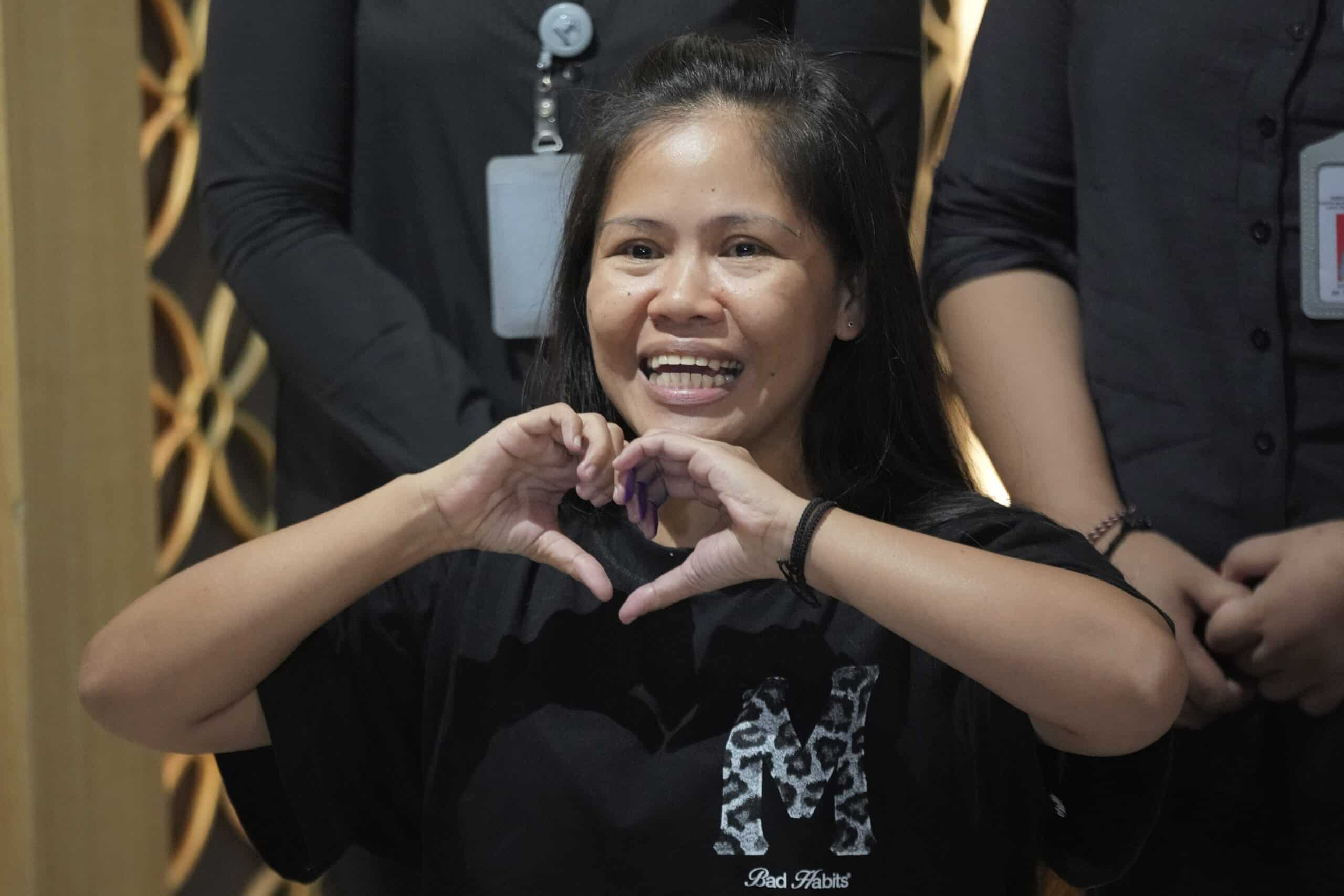Mary Jane Veloso must be freed since she has no charges in PH – lawyer

Mary Jane Veloso, a Filipina who was on death row in Indonesia and was nearly executed by firing squad in 2015, makes a heart sign during a press conference prior to her repatriation to the Philippines, at Soekarno-Hatta International Airport in Tangerang, Indonesia, Tuesday, Dec. 17, 2024. (Associated Press Photo/Tatan Syuflana)
MANILA, Philippines — Mary Jane Veloso, who was convicted for drugs, jailed in Indonesia for over 14 years, and recently returned to the Philippines following a decade of diplomatic efforts, must be set free.
Veteran lawyer Romulo Macalintal raised this argument on Saturday, stressing that the drug trafficking charges leveled against Veloso in Jakarta do not apply here.
“Whatever benefits the Philippine government will give to Veloso will be in line with the spirit of the transfer agreement, particularly to ‘facilitate the successful reintegration of sentenced persons into society’,” he pointed out
“But, in the meantime that such action has not yet been done by the president, Veloso should be released from custody of any government agency since she is not facing any charges here in the Philippines and the fact that not even a warrant of arrest has been issued against her by any court in the Philippines,” he added.
READ: Mary Jane Veloso returns home after 14 years
Article continues after this advertisementTalks of clemency for Veloso surfaced as news of her homecoming broke out in November.
Article continues after this advertisementPresident Ferdinand Marcos Jr. said Thursday that a clemency for Veloso is still subject for review.
Macalintal, however, cited the 2010 Department of Justice Circular No. 90, which prescribes rules in implementing the transfer of sentenced persons agreements.
He specifically pointed to a provision in the circular, Section 18, which states: “Only the sentencing State may, pursuant of its Constitution and laws, grant pardon, amnesty or commutation of the sentence. The administering State may, however, request the sentencing State to grant pardon, amnesty or commutation of the sentence by submitting an application with sufficient grounds.”
READ: 14 years on death row: Timeline of Mary Jane Veloso’s fight for justice
Macalintal argued, “By virtue of such agreement, the Indonesian government granted the request of the Philippine government for Veloso’s liberty and sent her back to the Philippines.”
Indonesian authorities arrested Veloso on April 25, 2010, after being found in possession of more than 2.6 kilograms of heroin. She was set to be executed on April 29, 2015, but at the last minute, the Indonesian government spared her life then to become a witness in the case of the Philippine Department of Foreign Affairs (DFA) against an international drug syndicate.
“While the Indonesian government left it to the Philippine government to do what the latter thinks is good for Veloso, President Marcos cannot use his pardoning power under our Constitution because such power applies only to criminals convicted under Philippine laws,” Macalintal explained.
“Our country does not even have jurisdiction over crimes committed by a Filipino in other countries,” he added.